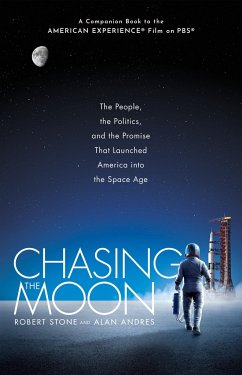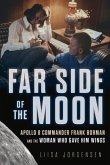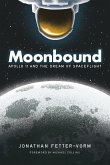An iconic young president issued the historic moon landing challenge. This book, which greatly expands the companion PBS series, tell the stories of the visionaries--based on eyewitness accounts and newly discovered archival material--who helped America win the space race with the first lunar landing fifty years ago. In 1960, Senator John F. Kennedy ridiculed the idea of space travel as a colossal waste of money with no scientific importance. A year later the new president proposed the nation spend twenty billion dollars to land a man on the moon before the end of the decade. More than a story of engineers and astronauts, America's moon landing--now celebrating its 50th anniversary--grew out of the dreams of a handful of people whose work led to the lunar landing. Going in depth to explore their stories beyond the PBS series, writer/producer Robert Stone--called "one of our most important documentary film makers" by Entertainment Weekly--brings these important figures to brilliant life. They include: * Science fiction author Arthur C. Clarke, whose writing inspired some of the key players in the moon race. He also proposed an idea to the FCC that helped the U.S. beat Russia in one area of space: communications satellites. * Werner von Braun, the former Nazi military genius who oversaw Hitler's rocket weapons program. Recruited to work for NASA, he managed the creation of the Saturn V moon rocket. * Astronaut Frank Borman, whose powerful testimony before Congress in 1967 decisively saved the U.S. lunar program from being cut. * Poppy Northcutt, a young mathematician who was the first woman to work in Mission Control. Her appearance in popular ad campaigns allowed her the freedom to stand up for equal rights for women and minorities. * Edward Dwight, the single African-American Apollo astronaut candidate, wanted by the Kennedy White House to promote public support for Civil Rights legislation and to boost the image of America in the "Third World." Famous for a brief time, he was then dropped from the program. Setting these key players in the political, social, and cultural climate of the time, and including captivating photos throughout, Chasing the Moon tells a unique, multifaceted history through a combination of new eyewitness accounts and recently discovered archival material.








